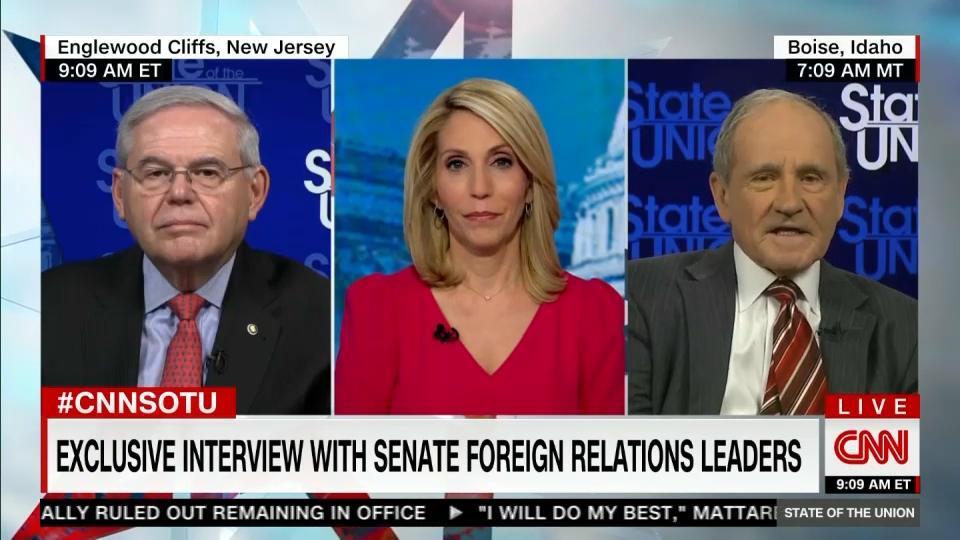Risch Discusses Russia and Ukraine on CNN’s State of the Union
BOISE, Idaho – U.S. Senator Jim Risch (R-Idaho), ranking member of the Senate Foreign Relations Committee, today joined Senator Bob Menendez (D-N.J.), chairman of the Senate Foreign Relations Committee, on CNN’s State of the Union to discuss Russia’s aggression against Ukraine and their legislative efforts to address it.
Watch the full interview on YouTube here .
On whether Putin will invade Ukraine:
“Well, I don't think that decision has been made yet. There's a lot of us that believe that if Putin sees weakness, if he sees bumbling, ineptitude, if he sees indecision, he will take advantage of that. I don't think he's made a decision to do that yet. What Bob and I and our coalition of bipartisan senators are attempting to do is to project the resolve that we have as Americans to see that he doesn't do that. To provide the strength, project the strength and convince him that this would be a very, very bad idea and it's going to be extremely painful. This is not the same as Crimea, when he did this last time. There is substantially more worldwide opposition to his thoughts this time.”
On legislative efforts in the Senate to address Russia’s aggression:
“This has been a 24-hour-a-day effort for the last several days. As always with these things, people have different ideas of how to get to where they want to get to. If you have two things on almost any problem, you can resolve it. Number one, if you have parties on each side wanting to reach the same objective, and number two, both sides working in good faith. If you have both of those, there's no reason you can't get to the finish line.
On efforts to sanction the Nord Stream 2 pipeline:
“As you know, we’ve had a continuing disagreement on that since the administration took office. But look, there’s been something happening on the ground that’s changed the dynamics and opened the door for us to reach agreement on that. And that is that the Germans have signaled they are suspending, pausing if you would, certification and thus completion of the pipeline for six months or until late summer. That gives us the opportunity to work with that idea. Certainly we should be in at least as good a position as they are, and that is sanctioning until that period of time. We’re working on that. I think that’s going to be the last “t” crossed, “I” dotted before we put the ball across the finish line.”
On why the United States should be engaged in deterring this conflict:
“When you have a country like Ukraine that wants to move West and look towards western values, that is a democracy – we side always with countries that are democracies. Certainly there aren’t going to be troops committed in that regard. The people who say we shouldn’t be engaged in this at all are going to be singing a very different tune when they go to fill up their car with gas if there is an invasion by Russia. Because as Bob pointed out, there are going to be sanctions that are crippling to Russia. It is going to cripple their oil production, and as we all know, Russia is simply a gas station that is masquerading, a thinly disguised masquerading, as a country. This is going to have a devastating effect on the economy around the world when it comes to the price of gasoline. If you’re someone that doesn’t care about the price of gasoline or oil, that’s fine. But if you do have a concern about the quality of life for people all over the world, this is something always you have to consider, particularly when you’re sympathetic and trying to help democratic countries.”
“If it wasn’t for NATO, the Baltic countries would be gone already and there’d be worse problems on the other side… This isn’t a place where there’s just going to be some action and it’s going to quit. At some point in time there’s got to be a line.”
These remarks have been lightly edited for clarity. Download the full interview on Google drive here.
###
